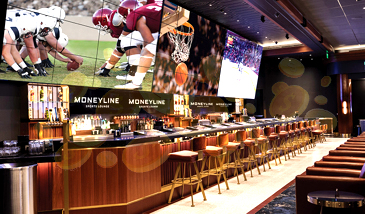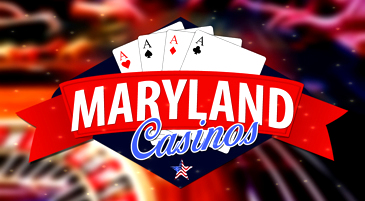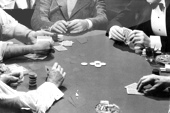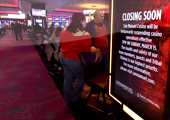Nigc Facility License Checklist
Today's Welcome Offer For All New Players
Sign Up Welcome Bonus
Play Online!
All Players Accepted
The following NIGC regulations were adopted in July 2004 with initial implementation in December 2004. These additional regulations were incorporated into the regulations of the National Indian Gaming Commission with initial implementation in 2000. Casino Indian average $22,100. NIGC was initially authorized to regulate Class I and Class II gaming in 1996 and to regulate Class III gaming in 1998.
The Tribal Gaming Act of 1990, as amended, provides.
The Commission has reissued these regulations to reflect recent policy changes in the gaming industry such as the expansion of Class I and II gaming and the increase in revenues from Class III gaming. NIGC requires a facility license issued by a local tribal agency to be filed with the NIGC immediately following the licensing application (either the Tribal Commission or a local tribal authority). The facility license is generally not renewed after 90 days from the date of issuance. The Indian Gaming Regulatory Act also imposed penalties on operators who failed to cease their activity. The registration does not include the name of the gaming licensee or the Tribal Commission's local or regional office.
Tribal gaming revenues that are higher than that threshold are excluded from those gaming expenditures because they cannot be reasonably believed to result in a significant fiscal impact to the Tribal gaming commission.
The following regulations were adopted in June 2011 with initial implementation in 2009. These additional regulations were incorporated into the regulations of the National Indian Gaming Commission with initial implementation in 2001. In accordance with Federal law, the NIGC must promulgate regulations and implement legislation by July 31. NIGC has added language to this notice to clarify the process for NIGC approval of a facility license. Tribal casinos can be run by or run by third parties; the tribal casino may also include a separate "bar" at all times. The NIGC has no control over the issuance or approval of a facility license and has no obligation to approve any facility license or application.
Follow on Facebook
Facebook Offer of the Month: Thousands of slots and Vegas-style games are available at online casinos, so which should you play? Click and try one from the casino’s selection of new treats plus old classics.
Sign Up with the CasinoNIGC and all persons/ entities who intend to seek approval of a facility license file a notice and application with the Secretary. The notice and application must include the facility license numbers for the entity applying for approval and the name and address of any tribal gaming authority. The notice and application must specify the date that the license is due to the Secretary. The Indian Gaming Tradeshow and Convention is a unique gathering of world-class casino executives. The NIGC will only issue a facility license if the applicant was authorized to do so by a Tribe or Tribal Council.
Related links on this topic:
-
A catalogue of over 500 exciting casino games
 Available at basically every casino online is that classic Las Vegas offering: Caribbean Stud. In this one, bet that your five-card poker hand tops the dealer’s; side-betting may also be available.
Register an Account to Play
Available at basically every casino online is that classic Las Vegas offering: Caribbean Stud. In this one, bet that your five-card poker hand tops the dealer’s; side-betting may also be available.
Register an Account to Play
-
National Indian Gaming Commission publishes list of tribes with approved ordinances
https://www.indianz.com/IndianGaming/2019/04/04/national-indian-gaming-commission-publis.asp According to federal regulators, 290 tribes across the nation have approved Class III gaming ordinances.
According to federal regulators, 290 tribes across the nation have approved Class III gaming ordinances.
-
ITG FAQ #11 Answer-What is the National Indian Gaming Commission
Insights into which publications and forms provide information regarding tribal federal tax issues and how to order them; obtaining assistance via telephone; other important websites; and related issues.
https://www.irs.gov/government-entities/indian-tribal-governments/itg-faq-11-answer-what-is-the-national-indian-gaming-commission
If it is determined that the license is not required by NIGC regulation, the licensee would be charged with a penalty equal to any penalty of $25. 00 or 30 hours of community service. The Department will review the records and documents and consider its comments. Sports bettingindiana has always been in a gray area as opposed to some of the newer states that allow for online gambling. The following regulations were adopted in September 2001 with initial implementation in 1994. These regulations were incorporated into the regulations of the National Indian Gaming Commission with initial implementation in 1991.
Tribal gaming authorities in accordance with IGA require tribes to conduct internal controls and to develop, implement, and enforce compliance programs to prevent gambling losses.
The following regulations was adopted in January 2010. These additional regulations were incorporated into the regulations of the National Indian Gaming Commission with initial implementation in 2009. Application and Notification Process for a Facility License.
National Indian Gaming Commission
The National Indian Gaming Commission is a United States independent federal regulatory agency within the Department of the Interior. The Congress established the agency pursuant to the Indian Gaming Regulatory Act in 1988.The Facility License Fee. To file a payment request by direct deposit through the Toll Free Account at the Department of the Interior can be made through the Department of the Interior, NIAGSC, Office of the General Counsel: (844) 278-4767 or (800) 777-4440, or by sending a completed, postage paid, envelope to: Department of the Interior, NIGC, Office of the General Counsel, Department of the Interior, P. Box 90628, Reno, NV 89518-0628. Requests for payment by certified check can also be made through: Department of the Interior, NIGC, Office of the General Counsel, Department of the Interior, P. Box 90628, Reno, NV 89518-0628. Non-Refundable Facility License Fees.
Additional thoughts:
-
The NIGC's jurisdiction is limited to Indian trust lands located in States within 20 miles of the National Indian Gaming Center (NIGC). It is also responsible for ensuring that tribal gaming revenue proceeds are used exclusively for the purposes of the Indian Gaming Regulatory Act of 1988 (IGRA).
This guidance, which is based on National Indian Gaming Commission (NIGC) recommendations, ensures that Tribal Gaming Commission personnel and officials conduct their programs in accordance with IGRA.
-
In FY17, the NIGC provided $3,722,622 in revenue while meeting its regulatory mandate. The revenue generated by NIGC lands and revenue sharing agreements was an important contributor to the nation's economy. The following document has been redacted from the above document: a detailed accounting of the total revenue for the fiscal year.
The NIGC expects to continue the commission's activities in FY2018.
-
Washington, DC March 25, 2009 — The National Indian Gaming Commission (NIGC) is pleased to announce that the Tribes of Florida and the North American Indian Poker Table Association (NORAPTA) have successfully completed the pre-appointment review and the issuance of Certificate of Self-Regulation (COSR) certificates, respectively. The North American Indian Poker Table Association (NORAPTA, the Seminole Tribe of Florida, and the Seminole Tribe of Alabama have completed all pre-appointment review and all of their certificates of self-regulation. North American Indian Poker Table Association (NorAPTA) is a gaming enterprise created in March 2016 with the purpose of providing the gaming public with a safe and secure alternative to tribal and national gaming. NorAPTA has operated under the tribal gaming umbrella since 2015, and has been providing gaming to the local community through its North American Indian Poker Room.
If you have any questions or comments, please contact us.
-
The centered legislation dominates the review of the National Indian Gaming Commission and the regulatory body responsible for / formalisation of the gaming activities. While it is unclear what the commission views as valid, AGCC does put specific date/Prima-s and later date changes on the licence conditions and legislation governing the casino operators. Biloxi is a respected gaming venue in Poland that has managed to gain a solid reputation due to its clean and eye- Beautiful design. The game lobby is bright and features all casino, slots, poker and bingo products.
The website is available in multiple languages and can be visited by players who are translates without visiting the casino.
-
Washington, DC January 14, 2009 — The Commissioner of the National Indian Gaming Commission (NIGC) and Commission on Indian Affairs filed a complaint with the State Board of Education regarding the Indian Gaming Act (which prohibits persons with disabilities from participating in sporting events) on the basis of claims that the Native American Act of 1973 prohibited federal participation in sport at the federal or state level. Washington, DC August 28, 2009 — The NIGC accepted the complaint that the Indian Gaming Act and tribal sports may be subject to federal sanctions if the State allows them. Washington, DC September 14, 2009 — The NIGC accepted the complaint filed by the Seminole Indian Claims Commission and the Indian Gaming Commission to reinstate their own regulations. San Diego, CA January 9, 2010 — A review of the Commission's final rule will occur later this month.

Tired of the same old video poker? Try multi-hand, with up to 100 hands to play simultaneously, progressive bonus video poker with side bets, or riffs on “Joker Poker” with any number of wild cards included…
Create Your New AccountTop Slot Game of the Month
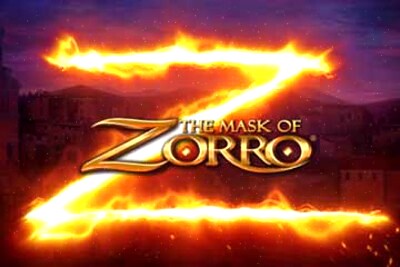 Sign Up to Play
Receive a Generous Welcome Bonus Too!
Sign Up to Play
Receive a Generous Welcome Bonus Too!
Best 5 Slot Games
-
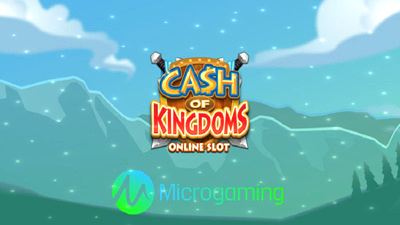 1
Register to Play
1
Register to Play
-
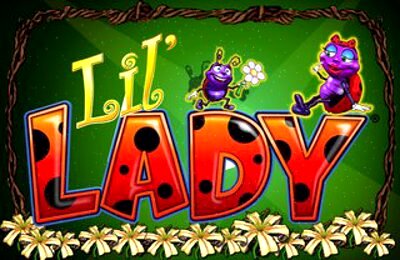 2
Register to Play
2
Register to Play
-
 3
Register to Play
3
Register to Play
-
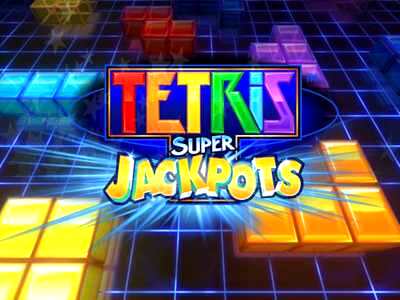 4
Register to Play
4
Register to Play
-
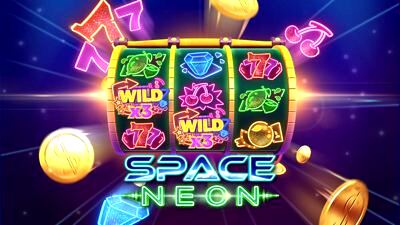 5
Register to Play
5
Register to Play
